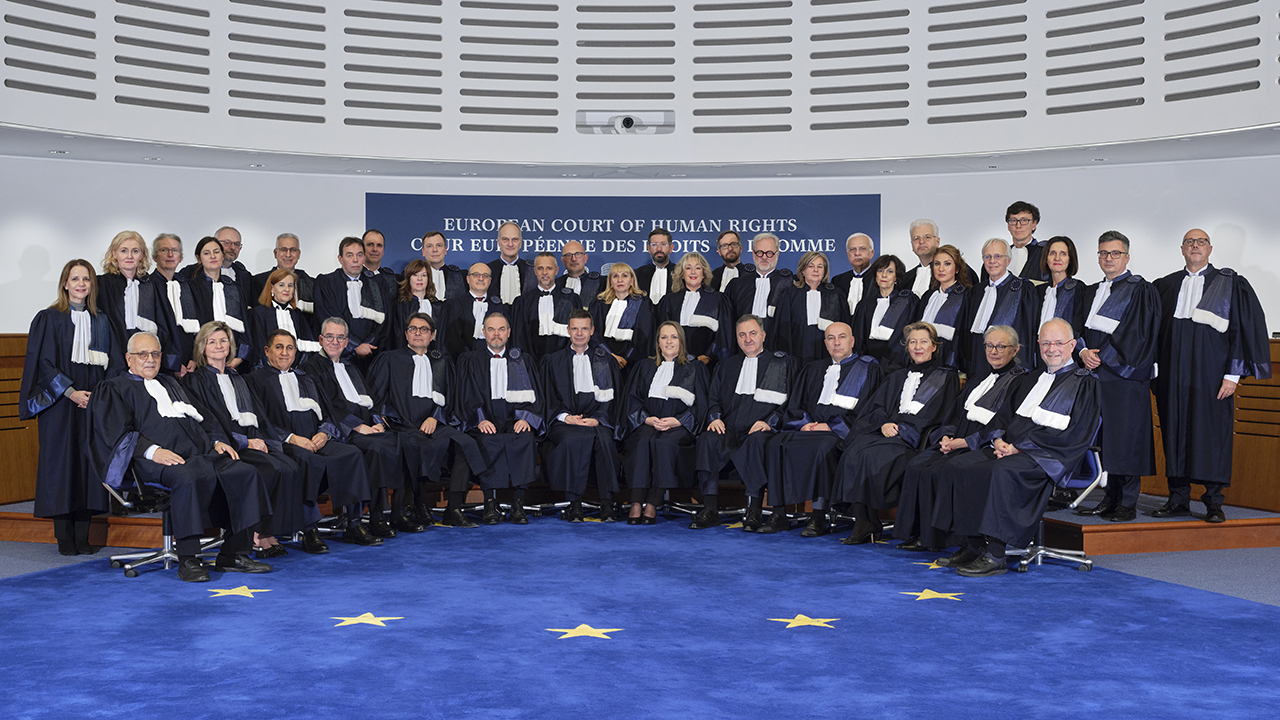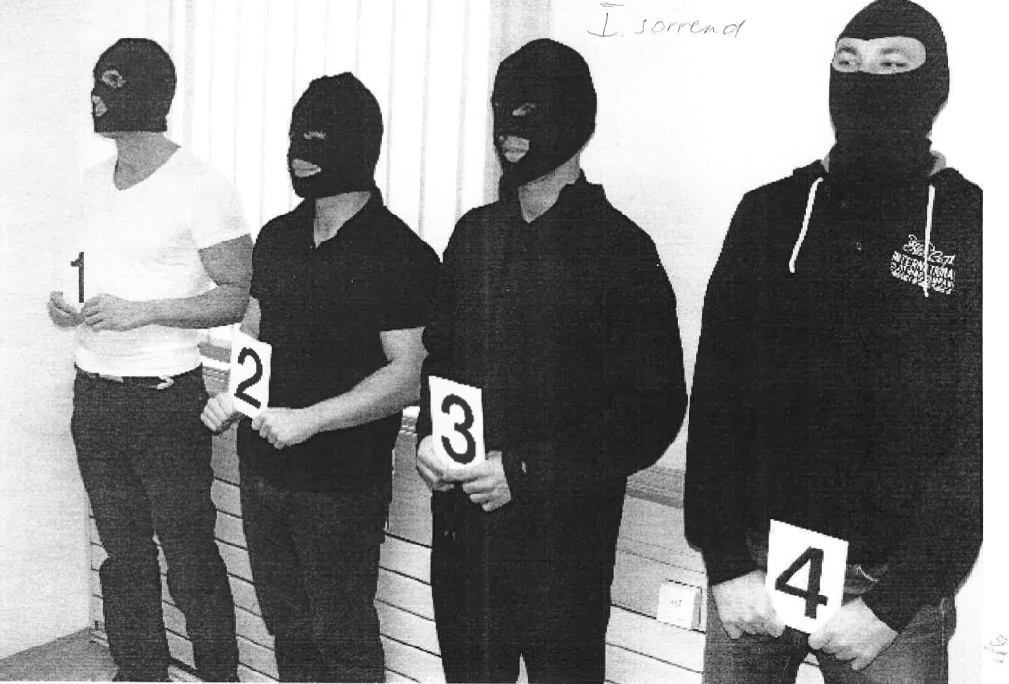 Dear President Siofra O'Leary, Your Honor,
Dear President Siofra O'Leary, Your Honor,
I am politically persecuted. I came into conflict with the Prosecution Service of Hungary, while debunking our degenerated justice system. Human rights belong to the most valuable achievements of the Enlightenment. Therefore, the European Court of Human Rights is the depositary of the ideas of the Enlightenment. The Enlightenment affected all areas of human rights. These achievements of the Enlightenment have not become obsolete, but developed. The prohibition of torture is also relevant these days. The issues I would like to deal with more thoroughly is the standard of proof beyond a reasonable doubt and the right to an effective remedy in criminal proceedings. In this regard, the views of Blackstone and Benjamin Franklin are the guiding principles. "That it is better 100 guilty Persons should escape than that one innocent Person should suffer is a Maxim that has been long and generally approved." - as said Benjamin Franklin in 1785. Although the correct choice of probability values that regulate the reliability of statistical inference in forensic expert opinions is an important problem, the Blackstone ratio is of rather symbolic significance: it expresses in a dramatic way the importance of not convicting the innocent in the framework of justice under the rule of law. This can be guaranteed by fair trial, by the standard of proof beyond a reasonable doubt and by the right to an effective remedy.
Hungarian politicians – especially as far as the right-wing conservative government is concerned – have regrettably moved away from the ideals of the Enlightenment, even though the current Prime Minister Viktor Orbán once acted bravely in the defence of human rights. In scandalous criminal cases, MeToo and other non-governmental organizations as well as the media around the world take a demanding stance against the justice system. This is not a Hungarian characteristic. However, instead of trying to preserve its independence, our judiciary tries to serve the social demands that appear in this form. According to the concept of Tibor Ibolya, Deputy Chief Prosecutor of Criminal Law, our justice system satisfies these demands with unfounded verdicts. According to Deputy Chief Criminal Prosecutor Tibor Ibolya, it is not absolutely necessary to prove the guilt of the accused by deductive reasoning forming a closed logical chain, if the prosecution is in difficulty to do so. In order to avoide the remedy of the unfounded judgements serving the purposes of the prosecution, the Act XC of 2017 on the Code of Criminal Procedure (hereinafter: Criminal Procedure Code) strongly limits the right to legal remedies (e.g. section 615, section 619 (1) and section 650 (2) of the Criminal Procedure Code).
The chief deputy prosecutor's uncritical idea is fundamentally contrary to the right to a fair trial under Article 6 of the Convention with regard to the presumption of innocence under point 2, the Criminal Procedure Code severely limits the right to an effective remedy under Article 13 of the Convention.
Such unfounded judgements are very successful in the media. The so-called lye doctor case is the favorite of domestic media, in which hospital director pediatrician Krisztián Bene – having difficulty in processing the breakup with Erika Renner – was accused of inflicting grievous bodily harm by pouring lye on the genitals of his ex-girlfriend. I have listened the series of hearings of the repeated appellate procedure of the lye doctor case. I found that the accused was wrongfully convicted. The victim did not recognise the masked attacker. The accused was suspicious, but his guilt could not be proven, so his innocence was not ruled out at all and he should have been acquitted. As a mathematician, I can usually decide without any doubt whether a proof is valid or not, even in criminal cases. The accused tried to seek legal remedies in vain. The Constitutional Court ordered a review in vain. According to section 650 (2) “Facts established in a final and binding conclusive decision may not be challenged in a motion for review.”. Therefore, the review was based on the conclusion that if the accused poured lye on the victim's genitals according to the "unchallengeable" facts, then he is obviously guilty.
The manipulative victim did not allow her injuries to be examined by forensic experts. The experts had to examine her injuries based on a series of photos. However, she agreed to make the photo series public in order to influence public opinion. The victim is really the victim of a truly heinous crime. The compassion awakened in the judges may also have contributed to the unfounded verdicts. The European Court of Human Rights has also made mistakes on an emotional basis. Dániel Karsai's application No. 32312/23 should have been rejected because the EU does not currently recognize the right to euthanasia. There is a solution, but it cannot be claimed before the European Court of Human Rights that Dániel Karsai missed this opportunity, because he was unable to travel on his own already. Out of pity, the European Court of Human Rights took Dániel Karsai's request to the Grand Chamber. This was a small mistake, there was no unfounded judgement, but the Court wasted its precious time on an inadmissible application.
I sent an email to the military prosecutor, Lt. Col. Gábor Sándor Csiha, who represented the prosecution at the repeated second-degree trial of the lye doctor case, in which I drew his attention to the fact that based on the knowledge attributed by the victim to his attacker, the circle of possible perpetrators cannot be narrowed, because that information can be passed on without limit, and the result of the police lineup was good for nothing, considering that the photograph of the suspect was made public before the police lineup, and the eyewitness unfortunately met the suspect awaiting for the police lineup at the police station.
It was impossible to get along with the prosecutor, and in my indignation, I insulted him harshly in emails. I rudely "threatened" that I would kick his ass if he didn't answer. But he did not object to this at the time. The aggrieved prosecutor defamed me. In order to convince him, I also called him on the phone, and he claimed that during the phone conversation I threatened him, saying "Get ready, because I kill you!". This is not true. I did not threaten at all during the phone conversation. Unfortunately, our phone conversation was not recorded.
At the suggestion of the prosecutor, the forensic psychiatric experts collaborating with the prosecutor's office misdiagnosed me as schizophrenic assessing my views on unfounded judgements as delusion. However, psychiatrists are not competent in other fields of criminalistics. I was unjustly convicted. I appealed in vain. The sentence was somewhat mitigated by the Capital Region Court of Appeal, but it refrained from examining the obviously unfounded facts that I attacked. The Constitutional Court, acting as a single judge, rejected my well-founded constitutional complaint without substantial justification, in order to cover up the errors of the system. Judge Gilberto Felici wrongfully declared my application inadmissible, presumably under the influence of Hungarian lawyers, on the basis that the Constitutional Court also rejected it. According to Judge Gilberto Felici, I failed to rise before competent domestic authorities, either in form or in substance and in accordance with the applicable procedural requirements, the complaints that were made to the Court. This is not true, but the judges of the Hungarian Republic are incompetent, even most of the judges of the Constitutional Court.
Thanks to Judge Gilberto Felici, my rights were further violated. I was placed under guardianship. The basis of the expert opinion establishing the guardianship is the unfounded diagnosis suggested by the slanderous prosecutor. I submitted a constitutional complaint against the unfounded verdicts in the lawsuit putting me under guardianship, showing that the expert opinion of a forensic psychiatrist prepared before the final verdict in a criminal case usually violates the right to a fair trial. As usual, the Constitutional Court, acting as a single judge, rejected my motion. Now I am going to submit an application to the European Court of Human Rights. I will post my application within two weeks. You are kindly requested to prevent my application no. 1310/24, wrongfully declared inadmissible, from being discarded. My soon-to-be-received application should be judged together with my previous application no. 1310/24.
Yours sincerely,
László Radnóti
Attachments:
A/1. Decision of the ECHR
A/2. Act XC of 2017 on the Code of Criminal Procedure – https://thb.kormany.hu/legislation
A/3. Photo of Krisztián Bene and Erika Renner published in Magyar Report before the police lineup – https://www.pestiriport.info/WebArticleShow.aspx?AN=beneszabad&MN=Kereses&LN=Hungarian
A/4. Police lineup photo

A/5. Photo series showing the injuries of Erika Renner –
https://felho.cafe/18-dokmentumok-a-lug-hoz/




